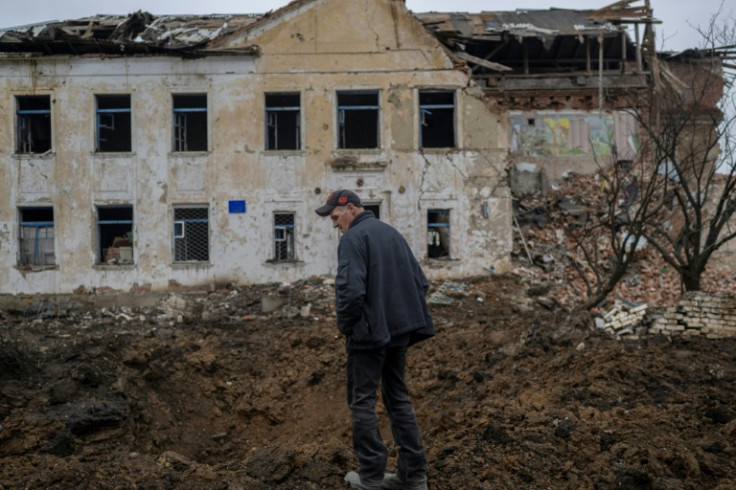Russia's Kherson Withdrawal Exposes Rift In Putin's Inner Circle, Confuses Both Experts And Hawks
KEY POINTS
- Russia says withdrawal was strategic, to save lives and ensure 'fighting capacity' of the forces
- Retreat ignited an 'ideological fracture' between Putin and the country's extreme hawks, says ISW
- Ukraine says Russian forces had 'no choice' but to flee from the city of Kherson
Russia's decision to withdraw its forces from Kherson just weeks after annexing it has left many experts surprised — the move has again exposed divisions within the pro-war allies of President Vladimir Putin, with some seeing it as a humiliating defeat while others have called it a strategic move.
With Kherson being the only regional capital that Russian forces had captured since the invasion of Ukraine began in February, and given its strategic location sharing borders with Donetsk, Crimea, and the Black Sea, Moscow's decision to withdraw its troops, although seems to have been a thought-out move, has left both hawks and experts confused.
Furious about the withdrawal from Kherson, Russian nationalist Alexander Dugin, who is known as "Putin's brain," reportedly accused the president of failing in his duty to defend Russian territory, reminding him of a quote from Sir James Frazer's The Golden Bough, in which a king is killed because he could not bring about rain in a drought.
While propagandist TV presenter Vladimir Solovyov, who is called "Putin's voice," delivered a furious tirade against the loss of Kherson, another pro-Kremlin analyst, Sergei Markov, described the withdrawal from Kherson as "Russia's biggest geopolitical defeat since the moment of the collapse of the U.S.S.R."
Top Russian propagandist Vladimir Solovyov is so mad about Russia's retreat from Kherson that he forgot the name of his own show and admitted to missing life the way it used to be. Watch his furious tirade, full of sighs, insults and outlandish lies: pic.twitter.com/X2KCTJVaCW
— Julia Davis (@JuliaDavisNews) November 12, 2022
In its assessment, following the Kherson withdrawal, the Washington D.C.-based Institute for the Study of War (ISW) has said the retreat had ignited an "ideological fracture" between Putin and the country's extreme hawks.
Given his military's inability to deliver the "maximalist goals of overthrowing the Ukrainian government and seizing all of Ukraine," Putin is facing a "harder time appeasing parts of the highly ideological pro-war constituency in the country," the ISW assessment said.
However, Chechen leader and Putin ally Ramzan Kadyrov, who was particularly stinging in his criticism of Russia's military leadership for withdrawals from Ukraine in September, believed that the Kherson withdrawal was a "difficult but right choice" between "senseless sacrifices for the sake of loud statements and saving the priceless lives of soldiers."
Gen. Sergei Surovikin, commander of Russian troops in Ukraine, meanwhile termed the withdrawal as a strategic decision to "save the lives of our soldiers" and ensure the "fighting capacity" of the forces.
Ukraine on its part has said that the Russian forces had "no choice" but to flee from the city of Kherson due to the sustained Ukrainian counteroffensive. Yet, officials in Kyiv advised caution fearing an ambush and warning that the Russian land mines could make Kherson a "city of death."
The Russian move seems to have equally confused international analysts. Some see the withdrawal as the Russian president's willingness to make tactical concessions in a situation that Moscow now presents as a larger conflict against the West, while others find it humiliating and unsurprising.
Meanwhile, as residents of Kherson city celebrate their liberation after months of Russian occupation, they are scrambling to deal with a severe shortage of water, food and medicine as Ukrainian officials seek to restore critical infrastructure.

© Copyright IBTimes 2025. All rights reserved.






















